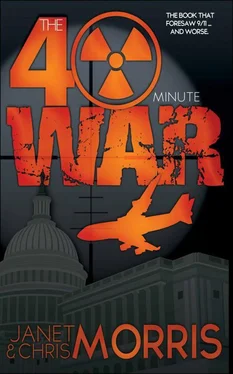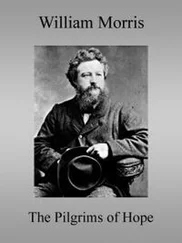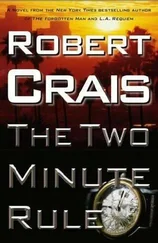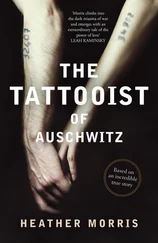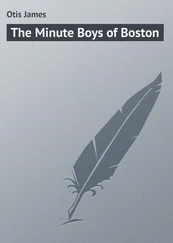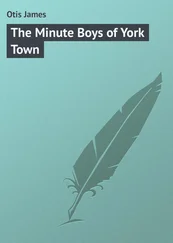“It comes expensive,” Ashmead said gruffly.
And then they’d reached the jeep, where one splayed figure slumped in its seat turned out to be a little worm from the consulate named Pickwick, and Zaki’s mysterious “One” explained itself:
Zaki had gotten one crate, and the terrorists had gotten the other.
Ashmead, with a whisper in his transceiver to Slick to bring the medic, began to pry it open with his combat knife while the Saiyeret major formed up his ranks to get their shots.
There was no hail of bullets by the time Beck and Chris Patrick drove up to the interdiction site—the Saiyeret on the east campus had seen to it that Beck was sufficiently delayed, checking his credentials and Chris’s, then double-checking, then making them wait until flak vests, replacement dosimeters and respirators for those Beck had left in his apartment, and a motorcycle escort to accompany them to the site could be found—and that only after Beck had thrown a diplomatic tantrum and called Netanayhu on a Saiyeret field phone.
Beck himself couldn’t have executed a delaying action any better. Grudgingly, he gave the Israelis the credit they deserved: they’d been told to keep him out of harm’s way and that security must be air-tight. They would and it was.
Even driving toward the site, beyond which lay Jericho and above it Jordan, Beck didn’t know where the hell he was going. He just followed the blue flashing lights on the bikes before him and fumed.
Beside him, Chris Patrick looked irresistible in her Israeli flak vest over all that silk. Beck cautioned himself not to get too attached to his agent—people died on the sort of operation Tiebreaker was shaping up to be; and, in espionage, being a woman was no protection.
His escort held them—politely but firmly—in their car while one talked to an Israeli commander with a flash hood in his belt and a black sleeve rolled up. Beyond the little knot of commandos were wrecked cars, a chopper shining a blinding searchlight on body bags being loaded into a van and, farther down the road, a makeshift medical station by a ruined jeep.
Chris sat quietly beside him, taking notes on the back of a deposit slip she’d found in his glove compartment, her lips white in the Plymouth’s courtesy lights.
When the Saiyeret leader came toward him, the commando slipped on his flash hood for anonymity and then leaned stiff-armed on the driver’s side window well, rolling down his sleeve as he said, “Mister Beck, this is a classified operation and you have a news—a press person with you. You’re welcome to look around, but she’s got to stay here. We’ll take good care of her.”
Chris Patrick looked up at the man in the mask and actually growled, a low noise in her throat that made the Saiyeret duck his head to stare at her.
“It’s standard procedure, Miss Patrick,” the commando said before Beck could intervene. “We’ve got to protect our identities… terrorist reprisals. You understand.”
“Do I look like a terrorist to you?” she demanded.
“Chris, in forty-eight hours you’re going to have all the exclusives you can handle,” Beck interjected before the Saiyeret could give her Counterterrorism 101, and touched her knee as the commando leader stood back so that Beck could get out of the car.
“Promises, promises,” he heard her say when the car door slammed; as he was walking away with the Saiyeret, she was estimating loudly how much an interview with one of those commandos would have been worth. Then one of the commandos told her she’d better roll up her window or put on her mask; she rolled up her window.
The Israeli beside him, out of Chris’s view, took off his flash hood and in the chopper’s searchlight Beck could see his black anodized major’s bars.
“Major, I’m going to need an explanation: if you people managed to be here in such well organized force, you could have been at the consulate. As far as I know, our intelligence-sharing agreement is still in effect.”
The Saiyeret steered him around a shadowy patch that turned out to be a piece of twisted fender: “Explanations aren’t my province; neither is intelligence. You wouldn’t be here if Rafic hadn’t cleared it—especially not with a girl newsie. You’ll have to talk to him about what you need—Sir.” The major’s American English was flawless but his jaw muscles ticked, his resentment barely masked: it was all he could do to be civil; his disdain for the American diplomatic corps was palpable.
And Ashmead, bare-headed but in Saiyeret blacks and sitting on the ruined jeep swinging his legs while to his left a masked Israeli medic gave commandos injections, barked at him: “What the fuck are you doing here, kid? Is it your specialty, being at the wrong place at the worst time?”
The medic gave a final stab and began putting a half full vial, alcohol, and syringes in his bag.
“If that’s what I think it is,” Beck said, flicking his eyes toward the medic and his bag as the Saiyeret major edged away and began moving his men out of earshot, “you’re way out of bounds, Rafic.”
Ashmead stopped swinging his legs and scratched behind one ear: “Beck, this is no place to talk about it, and you ought to know that.” His head turned: “Slick!”
Ashmead’s handsome deputy, his face smudged with powder residue, an Uzi swinging from his hip and a rifle slung over his shoulder, came around the jeep and gave Beck a cursory nod of acknowledgement.
“Slick, change clothes, then go introduce yourself to Miss Patrick as part of Beck’s security force and drive her home. Then take Beck’s car to my place and unload it. Beck’s coming with me.”
“Whose home—hers or his?” Slick asked with a sardonic smile playing at the corners of his mouth.
“Anybody’s but yours, Slick, okay? Go on, go.”
Both men could hear the deputy swearing as he trotted toward a lorry with a canvas top.
Beck, arms crossed, stared steadily at Ashmead, waiting for some sort of explanation. The rough-hewn CIA man stared back at him with sour amusement. Finally Beck said, “Rafic, what’s in my car?”
Ashmead jumped down from the jeep’s tailgate and Beck could see an open ammo crate with vials of serum in it. Ashmead patted it: “The other crate of serum. We wanted to slip them both out, but it had to look like we didn’t know Dow’s terrorists were coming—tried to put together some dummy serum but evidently it didn’t pass muster, so Zaki had to leave one real case; he got the other one and put it in your car.”
“Dow?” Beck now understood exactly what had happened. “Why the fuck didn’t you warn me, Rafic? Dickson’s dead, the consulate’s—”
“Dickson was part of your problem. So was Pickwick, who, along with Dow, isn’t going to cause any more trouble, beyond whether or not to ship their corpses back to the States.”
“Okay… Dow, Pickwick, Dickson.”
“And Zaki.”
“Zaki? I’m sorry. But still, you let the consulate blow. Sometimes you really live up to your reputation, you know?”
“In this business you can’t afford to get sloppy. As far as officialdom’s concerned, it’s a terrorist interdiction, a fait accompli that happened to accompli a couple of traitorous American scumsuckers along with a bunch of Shi’ites and Palestinians—I wasn’t here, unless it gets to the point where I’ve got to be to get Dov off the hook: we don’t want to ruin his day. Now, let’s go write the after-action reports with the good colonel, and then you can tell me about our ETD and the aircraft you’ve got for us—I heard that one’s a P-3B, one of those baby AWACs, and the other is a converted 727. That gives us zilch for active defense, in case somebody wants to make sure we never get there. And from the look of things, somebody probably does.”
Читать дальше
